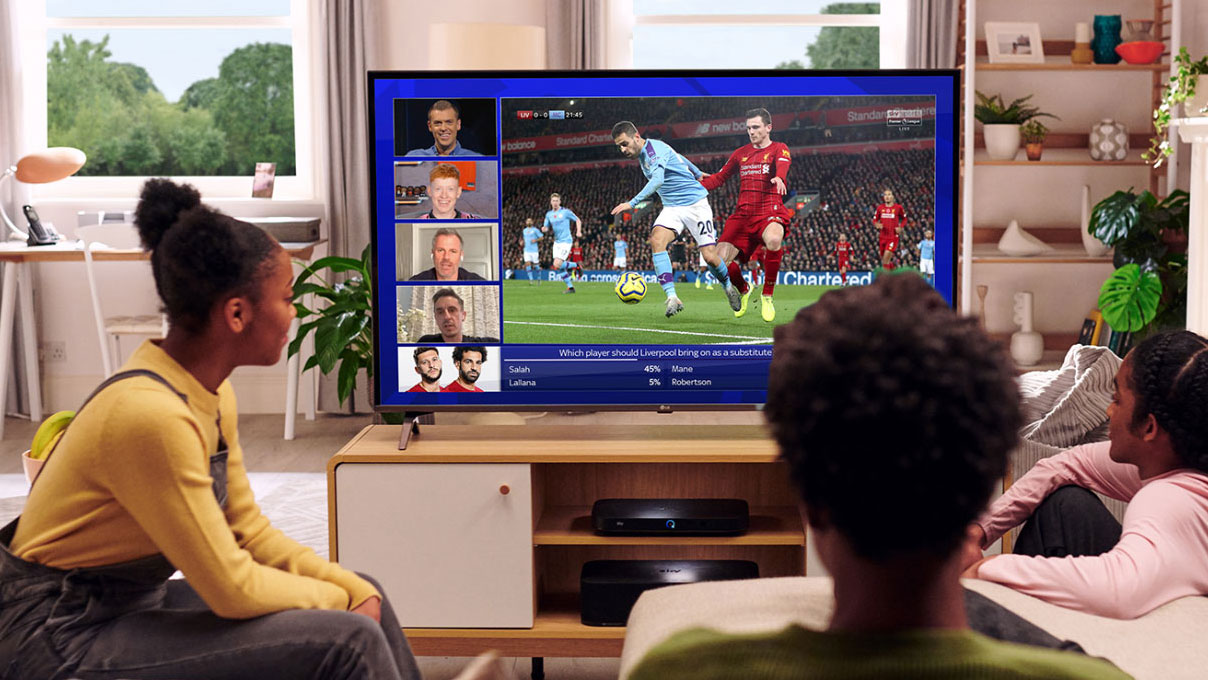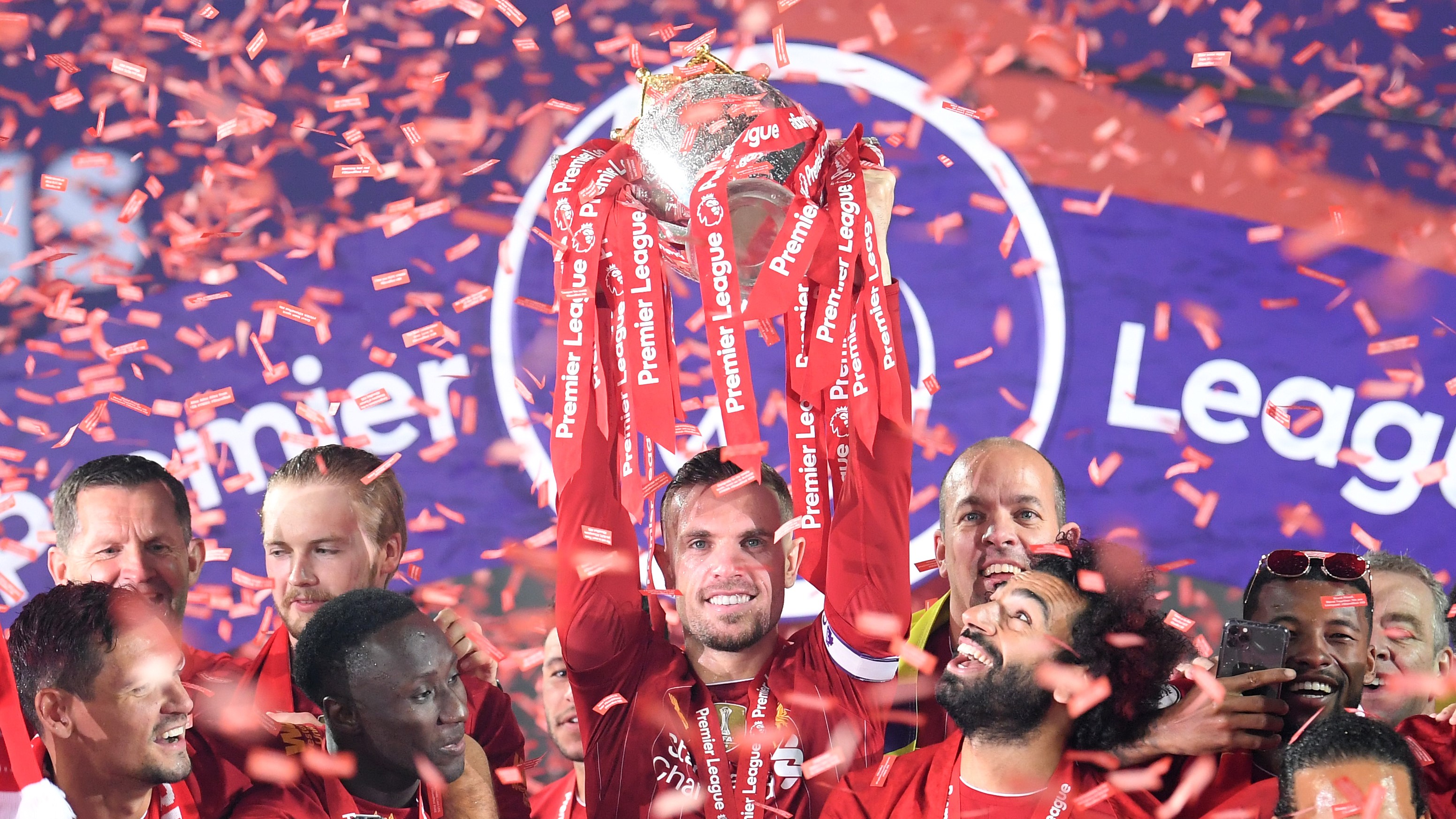Pay-per-view Premier League makes a lot of sense – but TV companies are going about it all wrong
Isn’t it about time football on TV joined the 21st century?

Sign up for breaking news, reviews, opinion, top tech deals, and more.
You are now subscribed
Your newsletter sign-up was successful
Being a football fan is a pricey business – but it’s about to get even more expensive.
At 8pm on Saturday night, Manchester United’s game against Newcastle at St James’ Park will be the first match you’ll have to pay extra to watch on top of Sky TV’s usual subscription charge.
A further eight games will be pay-per-view between now and 2 November, with presumably more to follow while the current restrictions on fans in stadiums remain in place. The price? A whopping £14.95 per game.
Of course, the Premier League has always been pay-per-view in a way. Sky hasn’t spent the past 28 years showing games for free and clubs don’t have a habit of letting fans through the turnstiles without paying. But the only people allowed inside stadiums at the moment are the players, coaching staff, officials and a few journalists.
When fixtures got back underway after lockdown every single game was televised – a generous gesture designed to lift the spirits of a beleaguered nation, but a short-sighted quick fix that has pushed the powers that be into a difficult situation.
Sky and BT Sport are contracted to show a certain number of live games per season – anything beyond that and they’re essentially giving their product away for free. That was never going to last forever, but fans have now got used to an all-you-can eat soccer buffet and can’t stomach the idea of having to cough up even more for it to continue.
An own goal
It’s hard to feel too sorry for armchair fans here – they’re still getting the same number of games they signed up for after all – but with many clubs sitting on season-ticket payments, asking normally match-going fans to fork out again when purse strings are being tightened and jobs are lost feels a little unreasonable, even if their contributions will be refunded or used as credit eventually.
Sign up for breaking news, reviews, opinion, top tech deals, and more.
And then there’s that price: £14.95 per game. Considering Sky will currently sell you its two dedicated football channels, which show about four games a week on average, for £18 per month; a £10 Sky Sports Day Pass for Now TV gets you all 11 channels for 24 hours; and in Spain you can stream every Premier League game on DAZN for a flat rate of €10 a month, it looks like a figure born of pure greed.

For a more direct comparison, some will point to the EFL’s iFollow streaming service, which charges £10 per game for clubs in the Championship, League 1, and League 2, albeit with a more limited level of coverage. But that ignores both the fact that all Premier League games are filmed and covered for highlights packages and overseas broadcasters anyway, so extra costs should be minimal, and that season-ticket holders of those EFL clubs are able to watch their home games for free.
Compared to the fight between Dillian Whyte and Alexander Povetkin back in August, which set boxing fans back £20, you could argue that £15 looks reasonable – but special events like that are far less frequent than football fixtures. For fans of smaller teams that tend to get picked for live TV coverage less often – in the 2017/2018 season, for example, Burnley were on just seven times compared to Manchester United’s 28 – the costs could quickly mount up.
A streaming season ticket
Then there are those who compare the price to a match ticket, which is so disingenuous it’s a bit like comparing Lionel Messi to Lionel Blair. It also wilfully ignores the fact that going to games has long been considered too expensive, with football fans campaigning for years for lower ticket prices as an increasing number find themselves priced out of attending.
Of course, the clubs themselves will claim poverty among all this, pointing to the havoc that coronavirus has wreaked on their matchday income. That may be true for those that can’t rely on income from their international noodle partners, and according to Brighton & Hove Albion’s chief exec Paul Barber the clubs had no say in the £15 figure. But when Premier League teams have collectively just spent nearly £1.5billion in the latest transfer window it’s hard to summon too much sympathy.
Hindsight is a wonderful thing but showing all games live as part of the existing subscription packages, rather than coming up with a way of catering just for season-ticket holders, has let the genie out of the bottle – but it could be used as a catalyst to bring about a change in the way fans watch their teams on TV.

Rather than the broadcasters picking which matches they want to show, which leaves supporters of all the other teams to either wait for Match of the Day or find a dodgy stream, there needs to be a better way of showing games that suits the way people watch in 2020 – whether fans are allowed into grounds or not.
By all means offer a curated selection of games for a flat monthly fee, but make that an affordable, basic option, with optional team-specific tiers above it that’ll allow fans to watch every game involving the club they support. Even better, offer it on a game-by-game basis as well, so that those who normally go to as many matches as possible don’t have to fork out the full amount just in case there’s one they can’t make.
Add geographical restrictions or sell-out conditions if clubs are concerned about protecting attendances (not that we need to worry about that at present), but the crucial thing is to make it affordable – perhaps £20 per month for a digital season ticket, or £5 per game. Do that and piracy – which reportedly costs English clubs £1million per game in lost sponsorship money – would practically disappear overnight as people go legit.
The coronavirus pandemic has exposed the flaws of the existing model and the technology exists to make things work better for fans. It’s time the most popular incarnation of the planet’s favourite sport caught up with the rest of the world.
- Sky TV deals: the best offers on Sky's TV and sporting packages
Tom Wiggins is a Freelance Content Manager. He has been writing for various magazines and websites for the past years including MSN South Africa, MSN UK, MSN, MSN Canada, TechRadar, Yahoo Sport UK, Red Bull, JAMA Oncology, TrustedReviews, FourFourTwo, ShortList, Wareable, Stuff India, Stuff (UK), FACT Magazine, Louder, Metro.News, PC & Tech Authority, The Set Pieces, Decrypt Media, FourFourTwo Australia, In Bed With Maradona, The Ambient, Inside Sport, The Baltimore Post, My Office News.